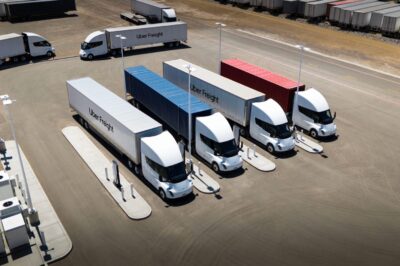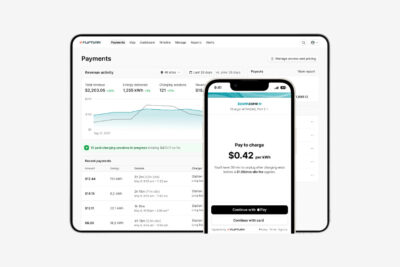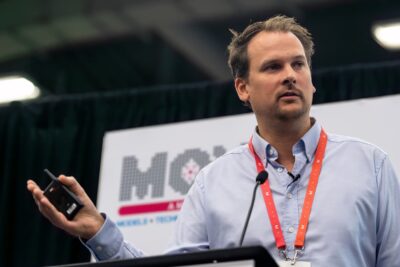Bidders threaten to withdraw from German truck charging network tender
As reported by the German newspaper Handelsblatt, the final tender phase for the announced truck charging network, in which companies such as E.ON, Aral, Tesla and Shell had previously expressed interest, will begin this month. However, several applicants could apparently drop out.
“Some charging network operators are threatening to withdraw entirely from the bidding process,” Decarbon1ze CEO Knut Hechtfischer is quoted as saying. The reason is said to be the “pass-through model,” in which truck drivers essentially bring their own electricity contracts to the charging point to avoid expensive roaming or ad-hoc charging.
In the tender organised by NOW GmbH, allowing third-party electricity providers at the operator’s own chargers is a fixed requirement. The approach is intended to promote competition but could make operating the locations less attractive. A spokesperson for NOW GmbH told Handelsblatt that they would not comment on whether bidders might actually withdraw, citing the ongoing tender process.
In mid-September 2024, Germany officially announced the tender for a truck charging network along its motorways. The first step concerns truck charging parks at around 130 unmanned rest areas. By 2030, however, a total of 350 federally funded locations with around 4,200 charging points are expected to form the initial truck fast-charging network.
Managed rest areas operated by Tank & Rast are excluded from the first tender round of the truck network. These account for over 90 per cent of managed rest areas in Germany. The reason is the (now resolved) legal dispute between Fastned and Autobahn GmbH, which had delayed the deployment of HPC chargers for cars and trucks at motorway rest stops for years. Only in a later tender does the federal government plan to have truck charging parks installed at 220 managed rest areas.
In many respects, the truck charging network tender resembles the Germany network for passenger cars, the so-called “Deutschlandnetz.” There are different lots and search areas. The aim is to cover both economically attractive and less lucrative locations equally, to create a comprehensive network. However, this is the first time the “pass-through model” has been made a requirement in a tender.
Normally, EV drivers pay either directly at the charger without registration (ad-hoc) or via a contract with the Electric Mobility Providers (EMPs). The EMPs then organise roaming with the CPOs – i.e., the functionality of an app or RFID card in Germany and Europe – and pay fees for it.
This setup is extended and simultaneously challenged by the so-called pass-through model: The idea is that car and truck drivers can charge at any location with their own electricity contract, while the CPO receives a fee instead of selling self-procured electricity. Keyword: Bring your own power. Can this work? Opinions in Germany are divided.
A clear yes comes from Johannes Pallasch of the National Charging Infrastructure Coordination Office (Nationale Leitstelle). Pallasch has endorsed the pass-through model in connection with the tender. From the federal government’s perspective, conditions that ensure strong and fair competition are important. Truck drivers should therefore be able to charge at the station with self-negotiated electricity contracts as an alternative to the previous practice, while the CPO receives a fixed infrastructure fee.
The amount should not be arbitrary but calculated transparently based on the costs of awarding these locations. According to Handelsblatt, the German Federal Network Agency had already considered offering infrastructure separately from electricity delivery three years ago.
Knut Hechtfischer, who now warns of “mass withdrawals” in the tender, spoke to our German colleagues at electrive in April. The CEO of the Berlin pass-through service provider Decarbon1ze is considered a pioneer of the principle. He said: “The state does not have to mandate it. The pass-through model is an additional feature at a CPO’s location that increases utilisation. And that is exactly what would make operators participate.”
Now, Hechtfischer told Handelsblatt that opening up the market could reduce electricity prices at the chargers by ten to 20 per cent. CPOs are resisting so strongly because “they fear this model could also spread to passenger car charging stations.”
The initiators of the tender are used to resistance. The association Inspire, which includes CPOs such as Ionity, Fastned, EWE Go and EnBW, as well as truck stop operators, filed a complaint with the EU Commission in spring against the planned federal truck charging network. The allegation: Germany distorts competition – thus harming e-mobility.
handelsblatt.com (in German)
This article was first published by Cora Werwitzke for electrive’s German edition.





0 Comments